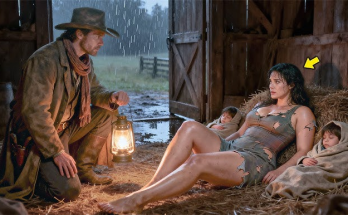Family outings have a way of creating memories that stick with everyone, whether it is a weekend at the park, a road trip to the beach, or a relaxed afternoon exploring a local trail.
One part of these adventures that always brings people together is the food.
Snacks, in particular, keep energy levels steady, help avoid mid-day slumps, and add a sense of comfort to time spent outdoors.
Choosing the right ones can make the day smoother and more enjoyable for everyone. A good family-friendly snack should travel well, taste great, and offer something nourishing that keeps kids and adults fueled throughout the outing. With a little planning and some thoughtful choices, you can pack snacks that make your time together even more memorable. One of the most popular options for family outings is a simple mix of fresh fruit. Fruits such as apples, oranges, grapes, and berries are naturally appealing and refreshing. They come with bright flavors and natural hydration, which makes them ideal for warm weather adventures. Many families enjoy preparing fruit in portable containers the night before an outing to make the trip smoother the next day. The combination of vitamins, fiber, and natural sweetness supports steady energy and helps keep everyone satisfied between meals. For parents watching sugar intake, whole fruits are a comforting choice because their natural fibers slow digestion and maintain balance. Along with fruit, many families appreciate snacks that offer protein. Protein helps provide lasting satisfaction, which is especially helpful when spending hours walking, exploring, or playing outside. A small container of roasted chickpeas, baked tofu bites, or a homemade trail mix can bring a savory option that balances the sweetness of fruit. Protein-rich snacks can also help keep kids from becoming overly hungry, which makes the day more pleasant for everyone. Since family outings often involve physical activity, even light ones like strolling through a zoo or visiting a botanical garden, a snack with some staying power can be a real asset. Another comforting snack category that works well for family outings is whole-grain choices. Whole grains are gentle on energy levels and help prevent the quick spikes and crashes that often come from more sugary snacks. Many families like to pack whole-grain crackers, mini sandwiches on whole-grain bread, or small servings of oatmeal cookies made with less sugar. These snacks tend to hold up well in travel bags and are easy for kids to hold and enjoy while on the move. When paired with fruit or a protein option, whole-grain snacks become a well-rounded part of the outing. Vegetable-based snacks can also add some brightness and crunch to a family day outdoors. Crisp vegetables such as carrots, cucumbers, or snap peas travel well and stay fresh for hours when packed with a cold pack or kept in a shaded cooler. Some families like preparing a simple dip at home, such as a yogurt-based dip or a mashed avocado spread, which gives vegetables an even more appealing flavor and texture. Including vegetables in your snack bag also helps everyone stay hydrated and refreshed, especially during warm seasons or long walks. For families who prefer something warm or homemade, baked snacks are another welcome option. Items like homemade muffins made with oats or fruit, or savory hand pies prepared with lighter ingredients, can add a comforting element to an outdoor meal. These types of snacks feel special because they carry the care and creativity of home cooking. Children often enjoy helping make these baked goods, which adds excitement to the outing itself. When preparing baked snacks, many families reduce sugar or salt for an option that supports balanced eating while still offering great flavor. Another category of snacks that works well for family outings is yogurt-based options. Individual servings of yogurt, especially when paired with granola or fruit, can feel both refreshing and satisfying. Coolers or insulated bags help yogurt stay chilled, making it safe and enjoyable even on longer outings. Yogurt brings a creamy, smooth texture that contrasts nicely with crunchier snacks and fruit. Many families also appreciate the calcium and protein yogurt provides, which supports younger family members during active days. Hydration also plays an important role in choosing snacks for family outings. Although drinks are separate from foods, selecting snacks that includ
